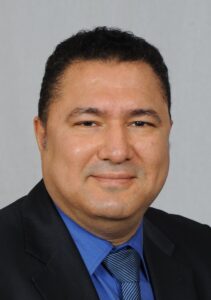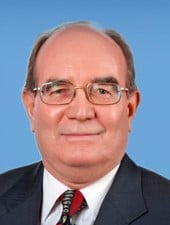The Law Firm of Salah Al-Hejailan in association with Freshfields Bruckhaus Deringer > Riyadh, Saudi Arabia > Firm Profile
The Law Firm of Salah Al-Hejailan in association with Freshfields Bruckhaus Deringer Offices
AL-DAHNA CENTER, 54 AL-AHSAA STREET
MALAZ DISTRICT, PO BOX 1454
RIYADH 11431
Saudi Arabia
- Go to...
- Rankings
- Firm Profile
- Main Contacts
- Lawyer Profiles
- Client Testimonials
- Diversity
- Doing Business In
The Law Firm of Salah Al-Hejailan in association with Freshfields Bruckhaus Deringer > The Legal 500 Rankings
Saudi Arabia > Commercial, corporate and M&A Tier 4
Saudi Arabia > Dispute resolution Tier 5
The Law Firm of Salah Al-Hejailan in association with Freshfields Bruckhaus Deringer > Firm Profile
Firm overview:The Law Firm of Salah Al Hejailan LLC (LFSH) is a full-service law firm which has been advising clients in Saudi Arabia for over 50 years. With offices in Riyadh, Jeddah and Al-Khobar (as well as regional capabilities in Abu Dhabi, Bahrain and Dubai – through our association with Freshfields Bruckhaus Deringer LLP (Freshfields)) – we understand what it means for clients to do business in the Gulf region. We understand the region’s business culture and etiquette and, importantly, its key commercial drivers, legislative and regulatory frameworks and approval processes. LFSH advises leading Saudi and international clients on Saudi and cross-border transactions, strategic and event-driven projects as well regulatory matters in Saudi Arabia and throughout the region. With 27 lawyers across our offices in Saudi Arabia, drawn from a wide variety of jurisdictions (both Saudi and international), LFSH is well-placed to meet the demands and needs of our clients. Our association with Freshfields provides access to a further 40 lawyers in the Gulf region, with whom we collaborate regularly, offers one of the strongest, most stable and responsive platforms in Saudi Arabia and the region, and combines LFSH’s world-class knowledge of Saudi law with the international reach of Freshfields.
Main areas of practice: As a full-service law firm, LFSH provides legal services across a wide range of sectors, including: corporate, M&A, joint ventures, foreign direct investment, banking & finance (both conventional and Islamic), real estate, commercial, contracts, IT/IP, licensing, franchising, e-commerce, telecommunications, regulation/compliance, construction, projects, infrastructure, procurement, employment, competition/anti-trust, arbitration, litigation, investigations, restructurings and Shari’ah law.
Main contact
Rodger Murray
Senior attorney
Telephone: +966 13 868 7266
Mobile: +966 50 055 9561
E-mail: rodgermurray@hejailanlaw.com
Main Contacts
| Department | Name | Telephone | |
|---|---|---|---|
| Senior Attorney | Rodger Murray | rodgermurray@hejailanlaw.com | +966 13 868 7266 |
Lawyer Profiles
| Photo | Name | Position | Profile |
|---|---|---|---|

|
Hussam Al-Hejailan | Managing Attorney Head, Litigation Department | View Profile |

|
Haneen Al-Hejailan | Senior Attorney | View Profile |

|
Waleed Al-Hossayen | Senior Attorney | View Profile |

|
Abdulaziz Al-Malik | Associate | View Profile |

|
Nawaf Al-Mutairi | Junior Associate | View Profile |

|
Dr Mohamed Al-Wakeel | Senior Attorney | View Profile |

|
Riccardo Bicciato | Senior Attorney | View Profile |

|
Anna Bodlaj | Associate | View Profile |

|
Dr Rania Emara | Senior Attorney | View Profile |

|
Joudi Soued | Associate | View Profile |

|
Robert Thoms | Senior Attorney | View Profile |
Languages
Arabic English German Italian SpanishClient Testimonials
CLIENT: Dr. Raed Al-Saadouni
International and Legal Compliance – LYM
Head of Legal, Special Security Projects, CIS
Head of Legal and Compliance, Airbus Saudi
COMPANY/FIRM: Airbus Saudi Limited
TESTIMONIAL: I am writing today to endorse a highly suitable individual, Mr. Waleed Al-Hossayen. I have known and worked with him for many years as part of his job with the Law Firm of Salah Al-Hejailan. I have always found him efficient and unfailingly punctual. He supported in number of complex cases before the Saudi courts, which is not an easy job, as it requires a deep knowledge of the requirements of the Shariah Law, in addition to the legal and business requirements in Saudi Arabia. I have seen him resolve conflicts and handle difficult situations with remarkable patience and admirable tact.
CLIENT: Helen Olds, Principal
Cynthia Chancellor, Finance Manager
COMPANY/FIRM: British International School – Riyadh
TESTIMONIAL: The British International School Riyadh has engaged the services of the Law Firm of Salah Al-Hejailan over many years. The ongoing engagement of Salah Al-Hejailan over a long period of time is due to the high-quality service we have been provided. They have supported us with a range of legal services and have always been responsive, supportive and client focused. No job has been too big or too small and where necessary they have partnered us with specialists to support specific legal needs. We are very happy with their professionalism and timely response when supporting our legal needs.
Diversity
Our firm is a diverse and inclusive workplace, with employees from multi-cultural backgrounds, whom we encourage and support to create a collegial working environment in which all can flourish.
We have a long-standing track record of mentoring Saudi law school undergraduates seeking to develop and enhance their legal knowledge, skills and abilities, in support of the Saudi universities’ cooperative education programme, some of whom have gone on to create their own successful practices.
Our law firm was amongst the first to employ female law school graduates when the Saudi government allowed women to work in the legal profession. We did so with a simple vision: to empower and support women to achieve professional and personal success.
Doing Business In
The Kingdom of Saudi Arabia
The Law Firm of Salah Al-Hejailan LLC was founded in 1968 by the late Sheikh Salah Al-Hejailan, who was awarded the honour of Commander of the British Empire (CBE) by HM Queen Elizabeth II in 2004 in recognition of his role as honorary legal adviser to the British Ambassadors to the Kingdom of Saudi Arabia (KSA). The firm is one of the oldest and largest law firms in KSA with offices in Riyadh, Jeddah and Al-Khobar, with over 30 lawyers drawn from a wide variety of jurisdictions (both Saudi and international).
In June 2022, the KSA Council of Ministers approved a new KSA Companies Law and the final approved version was published in the official gazette on 4 July 2022. The new Companies Law will come into force on 30 December 2022.
The new Companies Law introduces a number of developments and changes, compared with the 2015 Companies Law, which are critical to ensure alignment with KSA’s Vision 2030.
In this article, we answer frequently asked questions about doing business in KSA.
What are the principal regulations governing foreign investment into KSA?
The principal laws governing foreign investment are the Anti-Concealment Law and the Foreign Investment Law. These laws place governance of foreign investment in the KSA under the purview of the Ministry of Investment of Saudi Arabia (MISA) (formerly called the Saudi Arabian General Investment Authority), and make the investment in the KSA without the appropriate licences a crime punishable by a fine and/or imprisonment. The Anti-Concealment Law imposes penalties on any foreign entity operating in the KSA in breach of it and on any KSA national who assists a foreign national in such a breach.
Foreign companies establishing a legal presence in the KSA are also subject to the same corporate governance rules which apply to local KSA companies under KSA’s Companies Law. The provisions and requirements to comply with the regulations of MISA and to obtain the necessary licences from MISA are replicated in the Companies Law.
Finally, the Commercial Agencies Law applies to any foreign entity which does not wish to establish a legal presence in the KSA but wants to appoint a local KSA entity as its agent or distributor.
It has long been debated whether directors of a KSA company, particularly limited liability companies (LLCs) which are the principal investment vehicle used by foreign investors, owe fiduciary duties to the company and its shareholders. This has now been addressed by the new Company Law which imposes a duty of loyalty and care on all managers and directors of companies.
What licences or authorities are required before a foreign business can establish in KSA?
There are two main licences which a foreign investor must obtain in order to establish an entity in the KSA as well as several lesser licences which must be obtained following incorporation of the new KSA entity.
The key licences are the Foreign Investment Licence (FIL), which is issued by MISA and the Commercial Registration (CR) extract which is issued by the Ministry of Commerce (MOC). The FIL must be obtained before MOC will issue the new entity’s CR. The new entity is deemed to be incorporated once it has obtained its CR from MOC.
Following incorporation, the new entity must open accounts with various official agencies, including the Ministry of Labour, the Passport Office, the Chamber of Commerce, the General Authority of Zakat and Tax, the General Organisation for Social Insurance and the local municipality.
Can a foreign investor own 100% of its KSA LLC?
Under the 2015 Company Law, the concept of a single-member LLC was introduced subject to certain restrictions.
However, the new Company Law removes the restriction which prevented a single shareholder LLC from owning another single shareholder LLC, thus enabling the creation of group structures utilising 100% single shareholder LLCs.
Can names be freely chosen for LLCs in KSA?
Previously, there were restrictions on the format of names that could be used for companies in KSA. Generally, company names had to indicate the type of business being undertaken by incorporating words such as services or manufacture.
Under the new Company Law, some of the restrictions will be removed. It will be permissible for company names to be in a language other than Arabic and the name can be derived from one or a combination of the company’s purpose, its current or former shareholders or any other distinctive name.
How does a business set about getting a FIL?
The application for a FIL must be submitted to MISA. The key consideration when applying to MISA is that the activities which will be carried out by the new KSA entity must be clearly identified. These activities are described in, and selected from, the National Classification of Economic Activities document which is based on the International Standard Industrial Classification of All Economic Activities (ISIC4) issued by the United Nations Economic and Social Council.
Correctly identifying the activities to be carried out by the new entity is vital as it will determine the type of FIL which must be obtained and any minimum capital and local KSA shareholding requirements. The documents which must be provided in order to obtain a FIL will also depend on the activities to be carried out by the new entity but include, at a minimum, a copy of the applicant’s home country certificate of incorporation and its audited accounts for the last financial year.
Service fees are payable to MISA. Currently, the fees are a service fee of SAR2,000 (approximately GBP£410) per year and a subscription fee of SAR10,000 (approximately GBP£2,040) for the first year of the new entity’s life, rising to SAR60,000 (approximately GBP£12,240) for each subsequent year.
Are there any sectors of business in KSA that are closed to foreign investment?
MISA issues a list of activities which foreign entities are barred from carrying out. The list currently includes, amongst other activities, operating fisheries, oil & gas extraction and operating poison centres, blood banks, quarantine zones and recruitment offices.
What are the business structures generally used by foreign investors in KSA?
Although the new Company Law specifies eight different types of companies which may be incorporated in KSA, there are four main corporate structures which foreign investors generally use for investment into KSA. These are:
- the LLC: the LLC is by far the most common type of entity for both foreign and local investors. As stated above, an LLC can be 100% owned by a single shareholder.
- the Joint Stock Company (JSC): the JSC tends to be a less popular option for direct foreign investment into KSA due to higher initial capital requirements and stricter regulation. JSCs are normally chosen by bigger foreign investors who may wish to list the JSC on the Tadawul (the Saudi Stock Exchange) at some point during its lifetime. However, the new Company Law has introduced a new form of company, the simplified joint stock company (SJSC), which aims to meet the needs of entrepreneurs, private equity and venture capitalists. Similar to JSCs, the capital of SJSCs is issued in negotiable shares for trading in the capital market. Unlike JSCs, there is no minimum capital requirement for SJSCs. SJSCs also have simpler management structures and requirements and can be managed by one or more managers or a board of directors – thus creating greater flexibility for corporate governance.
- the Foreign Company Branch: a KSA registered branch of a foreign entity is not a separate legal entity and is considered to be part of that foreign entity.
- the Technical & Scientific Office (TSO): a TSO, once registered, cannot carry out any commercial activity in KSA. A TSO’s activities are restricted to providing technical information and support for the foreign company’s products to its KSA distributor(s) or end users.
Does a KSA company need to appoint auditors?
Under the 2015 Companies Law, all corporate entities in KSA were required to appoint auditors and produce audited financial statements. However, in a deregulation move designed to encourage entrepreneurship, the new Companies Laws exempt micro and small LLCs from the requirement to appoint auditors. It is expected that the implementing regulations of the new Companies Law will define the criteria for micro and small LLCs.
What happens if a company incurs losses?
A newly established joint venture company (JVCo) may incur losses during its start-up phase or during normal operations.
Under the 2015 Companies Law, where a company (JSC or LLC) incurs losses which exceed 50% of its paid-up share capital, the shareholders of the company must resolve to continue the company or seeks its liquidation. If the shareholders fail to pass the required resolution to continue the company, then the company is automatically dissolved by operation law.
The automatic dissolution provision is problematic as there is no easy route to procuring the formal liquidation of a company in these circumstances.
The new Companies Law removes the automatic dissolution by operation of law when losses exceed 50% of paid-up capital.
This will be particularly helpful for start-up entities, JVCos and existing entities developing new business lines of business which often incur significant start-up losses before delivering profits.
Can a foreign business access the KSA market without establishing a legal presence?
The only other way in which a foreign entity can access the KSA market without establishing a corporate presence is through the use of a local agent or distributor.
How does a commercial agency arrangement work?
Under KSA law, a foreign entity can appoint a local entity to act as its agent or distributor in KSA under an agency or distribution agreement. The agent/distributor must be 100% KSA owned and registered in the commercial agencies register maintained by MOC.
In addition, the agency/distribution agreement must be registered with MOC. Under KSA law there is no distinction between an agent and a distributor and, until recently, there was no separate law to deal with franchises. Specified clauses must be contained within the relevant agreement (e.g., the duration of the contract and its territorial application).
Foreign principals should be aware that there is also some inconsistency between what the law states and how MOC applies it in practice (e.g., MOC will normally require that exclusivity clauses are included in the relevant agreement even though it is not a requirement under the Commercial Agencies Law).
It is important to note that the agent/distributor must be fully independent of and cannot be seen to be operating under the direction of the foreign principal. If this is not the case, it could be considered to be a breach of the Anti-Concealment Law and relevant penalties could be applied against the foreign entity and its KSA agent.
Who is permitted to become a commercial agent?
An agent has to be either a KSA national or an entity wholly owned by KSA national(s) and must be registered with the relevant department at MOC. A foreign-owned entity cannot act as a KSA agent.
How does a foreign investor establish a joint venture company in KSA?
As described above, in order to establish a JVCo (with local or other foreign investors), the foreign investor(s) will need to obtain a MISA licence. Documents will also have to be provided by the local KSA shareholder.
It is also highly recommended that the relationship between and the obligations of the foreign and KSA shareholders in a proposed JVCo are clearly and expressly set out in and regulated by a shareholders’ agreement or other similar business venture agreement.
Prior to the new Companies Law, there was uncertainty and inconsistency on the part of KSA courts as to whether shareholders’ agreements were legally binding and enforceable in KSA. However, the new Companies Law recognises shareholders’ agreements and confirms that such agreements are accepted as being valid and binding provided such agreements do not conflict with applicable KSA law.
It is also essential that the articles of association of JVCo either reflect or are not inconsistent with the terms of the underlying shareholders’ agreement in order to avoid conflicts.
When establishing a JVCo in KSA, regard must be had to whether the JVCo will result in the creation of an economic concentration under KSA Competition Law which must be notified in advance to (and approved by) the KSA General Authority for Competition.
What cultural sensitivities should a foreign business be aware of when looking to establish in KSA?
The main cultural sensitivities to be aware of are those contained in Shari’ah law and revolve around the requirement for women to be modestly attired and the prohibition of dealing with haram (forbidden products) such as alcohol, gambling, etc.
From a corporate and business aspect, it is also important to note that the payment of interest is also prohibited in the KSA.
How does Shari’ah law affects foreign businesses wishing to operate in KSA?
Shari’ah law’s main impact is the prohibition on the payment of interest; however, Shari’ah-compliant Islamic financing arrangements are available from all leading KSA banks as an alternative to conventional financing.
Otherwise, it is important to note that Saudi courts do not normally grant awards for business aspects which are considered gharar or uncertain, (e.g., loss of profits, unless these can be proven directly).
What is the legal process for settling commercial disputes in KSA?
Commercial disputes in the KSA are normally resolved through amicable settlement, arbitration, the commercial court or one of the specialist judicial committees, such as the banking disputes committee.
Arbitration is only applicable if the parties agree to it after a claim arises or have already agreed to it in the relevant agreements between them (i.e., dispute resolution clauses). Arbitrations can be conducted in KSA, under the KSA Arbitration Law on an ad hoc basis or through an arbitration centre such as the Saudi Commercial Arbitration Centre, or abroad under the rules of an international arbitration organisation such as ICC.
A significant number of commercial disputes are resolved before the KSA commercial courts. Foreign investors should be aware that the courts of the KSA are highly procedural and dependent on a strong chain of evidence.
Finally, in certain specialist sectors, such as banking or insurance or for breach of the Anti-Concealment Law, disputes are resolved before sector-specific quasi-judicial committees which have quasi-judicial panels comprised of sector-specific specialists.
Further information
For further information, please contact:
- Sultan Al-Hejailan – sultanh@hejailanlaw.com
- Rodger Murray – rodgermurray@hejailanlaw.com
- Alastair Drummond – alastairdrummond@hejailanlaw.com
- Kareem Al-Sadi – kareemsadi@hejailanlaw.com
Note: This memorandum is for information only and does not constitute legal advice.
- Commercial, corporate and M&A
